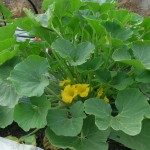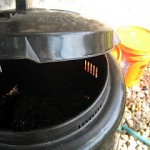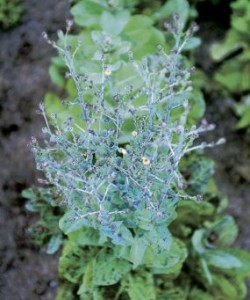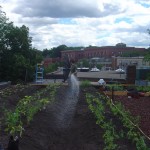Hi! If you heard Jessie Banhazl speak at the American Heart Association's Go Red luncheon, or you are just interested in learning more about where to get local, healthy food, the history of the US food system, of how to grow your own, see below for resources recommended by Green City Growers:
Many of our clients chose to plant a variety of cucurbits in their gardens for the summer. The cucurbit family includes squash, zucchini, cucumbers, and melons. After sprouting up their initial oval seed leaves, the plants grow heart-shaped leaves that are often covered in a gentle layer of fuzz. When cucumbers and melons start to take off, the plants look like massive bushes of stems displaying their green hearts to the world and holding their yellow flowers close to the center.
Cucurbits are monoecious, meaning that each plant has both male and female flowers. The plant first produces male flowers, the ones that make the pollen, and then grows the female flowers. Honeybees carry the pollen from the male flowers to the female flowers, where little cucumbers and melons begin to form. A few days ago, Allison and I were looking at some cucurbits in a client’s garden and were surprised to see what looked like little baby cucumbers at the base of some of the flowers while the flowers were still in full bloom. It turns out that the flowers that are swollen at the base are the female flowers, and the ones that have thin stalks are male flowers. Once the female flower is pollinated, the base of the flower will continue to grow into a cucumber or squash, but if the flower isn’t pollinated for some reason, the flower will eventually drop off the plant.
Like any good southerner, I would enjoy a nice cold glass of sweet tea after a morning of installing garden beds in the hot sun. On cold winter afternoons I love to curl up with a hot mug of peppermint tea. When I'm feeling a little crazy I might even go for some chai.
In the gardens around Somerville, summer crops are starting to take off. Gardens that were planted early in the season and have plenty of sun are starting to overflow with fat sugar snap peas hiding among green leaves on the vine, and tomato plants are growing big enough to be velcroed to stakes and produce tiny green tomatoes. Clients who have been used to going out into their gardens to harvest a salad for dinner are seeing some changes. As the days get longer and hotter, lettuce begins to go through a process known as bolting. The plant shoots up a tall stalk with flowers at the top, getting ready to go to seed. Although it may be charming to watch your lettuce flower, bitter bolting lettuce is not so charming to the pallet.
Until about two days ago the yard outside of the Green City Growers office was getting very difficult to navigate. Looking out the office window, you were transported into a jungle of tomatoes, peppers, cucumbers and melons. Eggplants held their own in a bed, herbs poked their little leaves out of the fray, blueberry bushes calmly ripened their berries. The tomatoes and peppers were jumbled together: Black Prince next to Black Velvet, Yellow Brandiwine in between a Sun Cherry and a Jet Star, Commandment pepper squeezed beside a Jalepeno. There was nowhere to walk because the squash were in the path. The gate could barely open as the jungle inside, bursting with leaves and flowers hoping to turn into fruit, pushed its way outwards.
Then, the jungle moved to a farm. Well, much of the jungle. And the farm isn’t traditional. It’s rather small on the scale of farms. But it’s on a roof. This “farm” is the rooftop garden on a restaurant called the Ledge, in Dorchester. This installation is different than some of our other rooftop projects because we are working with green roofing engineers: instead of putting garden beds on the roof, the entire roof has become a garden.
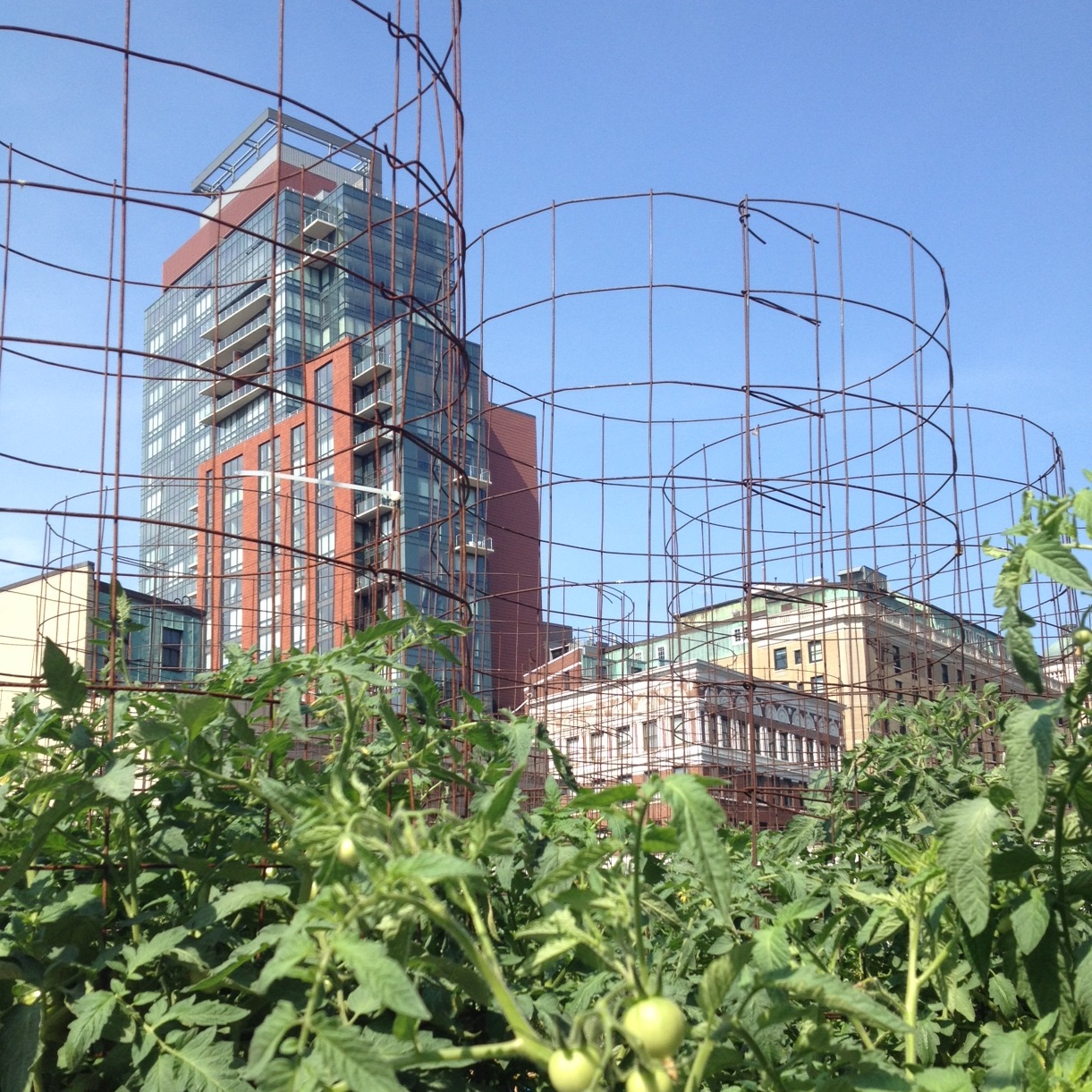
From tips and tricks about gardening, to insights into the food industry (both local and global), to our favorite new recipes, this blog exists to tell you what’s on our mind here at Green City Growers!
Recent Posts
Posts by Topic
- urban farming (10)
- Garden Recipes (6)
- garden maintenance (6)
- urban agriculture (6)
- Using your harvest (3)
- article 89 (3)
- educational garden (3)
- garden (3)
- urban chicken keeping (2)
- Farmers market (1)
- Restaurant gardens (1)
- ama (1)
- american heart association (1)
- b-corp (1)
- back (1)
- carrot (1)
- cold frame (1)
- compost (1)
- garden bed (1)
- go red (1)
- harvest (1)
- heart disease (1)
- heart-healthy (1)
- internship (1)
- kale (1)
- order seeds (1)
- pest and disease control (1)
- raised (1)
- rooftop farming (1)
- spring planting (1)
- vegetable (1)
- workshop (1)

